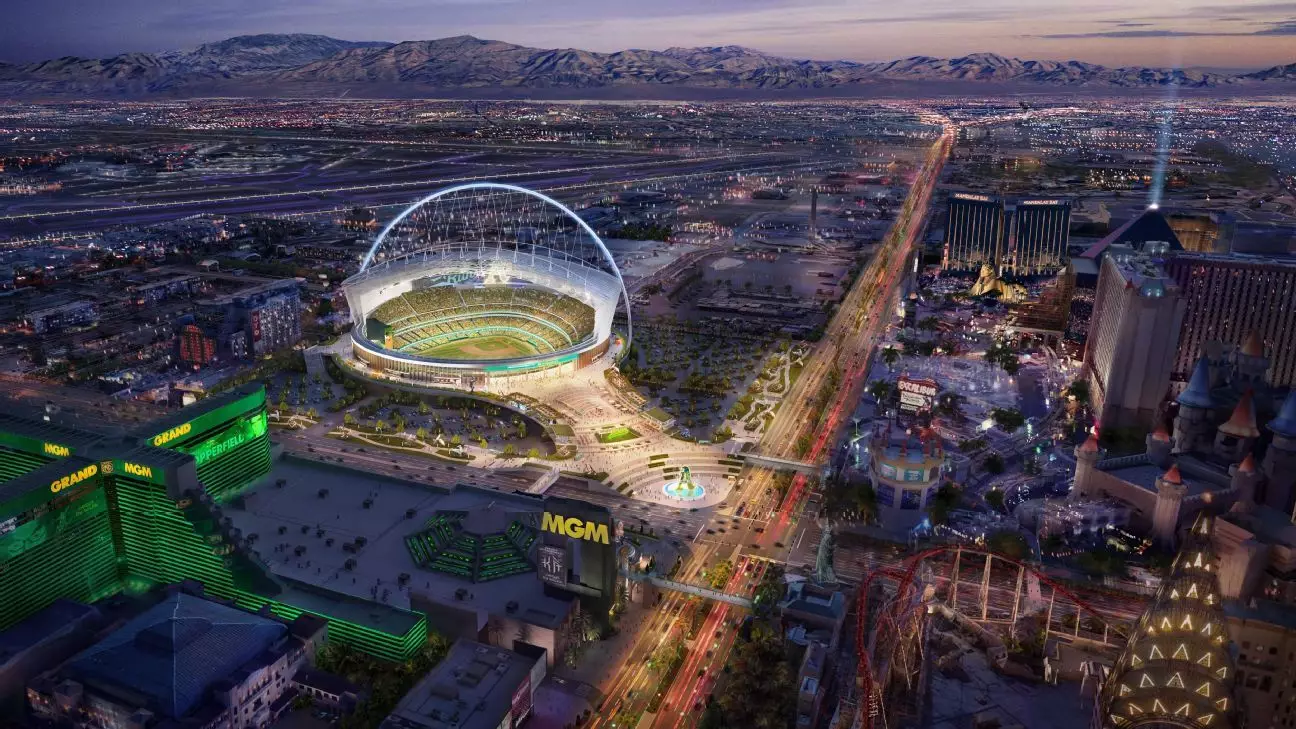The Dawn of Major League Baseball in Las Vegas A New Era Begins
Las Vegas, a city synonymous with entertainment and glamour, is embarking on an exciting new chapter that involves more than just flashing lights and casino thrills. The Las Vegas Stadium Authority has given the official nod to the Oakland Athletics’ plan to build a cutting-edge stadium on the iconic Strip. This momentous decision is not just another addition to the city’s sporting venues; it represents a pivotal shift in the sports world. As someone who has always been fascinated by Las Vegas’s dynamic nature, I can’t help but feel thrilled about this transformative move.
There’s something undeniably captivating about how Las Vegas continues to evolve, embracing new opportunities with open arms. I remember my first visit to the city, captivated by its unique energy and vibrant atmosphere. Now, imagining it as a hub for Major League Baseball (MLB) fills me with anticipation. The plans for a $1.75 billion investment in this state-of-the-art stadium promise not only to change the landscape of baseball but also to solidify Las Vegas’s growing reputation as a sports powerhouse.
Having seen how sports can unite communities and create unforgettable experiences, I am excited for what lies ahead for both fans and residents of Las Vegas. This development is more than just about building a stadium; it’s about fostering connections, celebrating athleticism, and welcoming a future filled with possibilities. It’s an incredible time to be part of this journey, watching as Las Vegas transforms into a haven for sports enthusiasts from all around the world.
Key Takeaways
- The Oakland Athletics are set to build a new stadium on the Las Vegas Strip, marking a significant milestone for the city.
- The project involves a $1.75 billion investment, emphasizing MLB’s commitment to expanding into emerging markets like Las Vegas.
- This move promises to enhance Las Vegas’s reputation as a major sports destination alongside other teams like the Raiders and Golden Knights.
A New Landmark on the Strip
The decision to establish a stadium for the Oakland Athletics right on the Las Vegas Strip is nothing short of groundbreaking. This new landmark will not only draw baseball fans but also capitalize on the city’s bustling tourism industry. As Steve Hill from the Las Vegas Convention and Visitors Authority pointed out, this decision reflects a collective vision for what Las Vegas can become—a central hub for major sporting events. It’s fascinating to think about how this new facility will integrate into the existing fabric of entertainment that defines Sin City.

While many agreements are already in place, details like development agreements with Clark County are still being finalized. These ongoing discussions highlight the collaborative effort involved in bringing such a massive project to fruition. The anticipated start of construction in spring indicates that everyone involved is eager to get things moving swiftly. This enthusiasm isn’t just about meeting deadlines; it’s about setting the stage for an unforgettable 2028 MLB season opening that fans won’t want to miss.
Overcoming Financial Hurdles
Like any large-scale project, building this stadium comes with its financial challenges. Initial estimates have ballooned due to inflation and additional features designed to enhance fan experience. But rather than view these as setbacks, they are seen as opportunities to innovate and elevate what fans can expect at games. For instance, an advanced under-seat cooling system promises comfort even during those intense summer months—a testament to how seriously the Athletics are taking their commitment to quality.
Nevada and Clark County’s pledge of $380 million in public funds further illustrates the community’s support for this venture. The stipulation that these funds are contingent upon the Athletics’ own financial contributions ensures accountability and commitment from all parties involved. With substantial investment already made by team owner John Fisher, backed by financial giants like U.S. Bank and Goldman Sachs, it’s clear that every effort is being made to see this vision become reality without unnecessary delays.
A Thriving Sports Ecosystem
The arrival of Major League Baseball in Las Vegas isn’t just about adding another team; it’s about enriching an already thriving sports ecosystem that includes NFL’s Raiders and NHL’s Golden Knights among others. Each team adds its unique flavor to the city’s vibrant sports culture, attracting diverse audiences from across various demographics. This creates exciting opportunities for cross-promotion and shared fan experiences that could redefine how we view sports tourism.

As the Athletics transition into their temporary home in West Sacramento before finally settling in Las Vegas, there’s much anticipation surrounding their future performance on-field as well. Recent strategic moves like acquiring pitcher Luis Severino signal intentions not just towards relocation but establishing themselves competitively early on within MLB circuits—a clear message about their ambitions post-relocation.
Final Thoughts
In conclusion, this monumental decision by the Las Vegas Stadium Authority isn’t merely about constructing another venue; it signifies ushering in [CONTINUE FROM HERE]


Leave a Reply